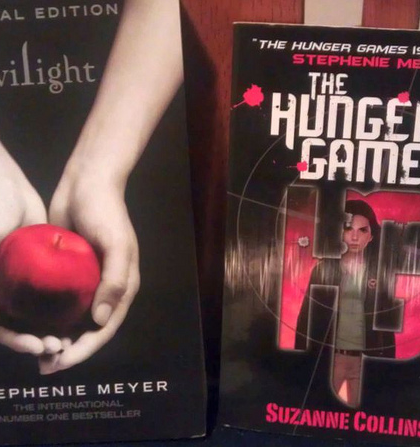Matt Mersel
Photo Courtesy of kmcg2375
These days, it seems impossible to have a discussion about movies without someone lamenting Hollywood’s apparent lack of creativity. It’s clear why some share this belief; it seems that just about every big release nowadays is a sequel or a novel adaptation. “Twilight,” “Hunger Games,” “Transformers,” “Paranormal Activity”—you name it. Often cited is the statistic that not a single one of the top ten grossing films of 2011 was an original—the first original film comes in at number fourteen, with “Bridesmaids.” Has Hollywood finally scraped the bottom of the creativity well? Are we doomed to a new era of horrible sequels and half-baked novel adaptations?
No, you guys. Chill out.
Yes, many of the blockbuster films recently have not been original. However, before claiming that American filmmaking has no future, we need to explore Hollywood’s past. Let’s look at some great releases of the past years. Who didn’t like “The Wizard of Oz”? “Psycho”? “How about The Godfather”? “Shawshank Redemption”? “No Country For Old Men”? “Fight Club”? “The Shining”? These are some of the greatest films ever made.
And every single one is based off of a book.
We can do the same thing for sequels, too. “Empire Strikes Back” is the best Star Wars film. “Terminator 2” blows the original out of the water. “The Lord of the Rings” is getting a promising prequel in “The Hobbit,” and “Planet of the Apes” was successfully rebooted to great acclaim with “Rise.” And do we even need to talk about the Dark Knight trilogy? No one seems to care that these films are sequels and adaptations based on their exceptional quality. So why are adapting and continuing franchises just now becoming issues in Hollywood?
There’s a hard truth to accept here. It’s not Hollywood’s fault that the box office is saturated with crappy remakes. It’s your fault. Yes, you, the one who thought “Whatever, it’s a slow day, we may as well go see ‘Transformers: Dark of the Moon.’” You, the one who camped out for hours just to see the Twilight movie at midnight. The reason studios make these half-baked movies is because they know they can get away with it. The money keeps pouring in, so the terrible films just keep pouring out. If Michael Bay could break box office records with the Transformer franchise, why wouldn’t he want to try it with another Hasbro toy and create “Battleship”? It’s not entirely his fault.
“But Matt,” you might say, “how can I help giving money to these awful movies if they’re the only ones I ever see advertised?” Well, young grasshopper, you’ve come to the right film major. Let me direct you to some of the most incredible releases of the past year, none of which are adaptations. “Looper” is one of the best and most gripping films of the decade, a sci-fi thriller to rival even the best. “Moonrise Kingdom” is a wonderful and quirky exploration of adolescent struggles. “Ted” is one of the funniest movies ever made. I could dig deep into the smaller releases, directing you toward “The Master” and “Sleepwalk With Me,” but I don’t even have to in order to make my point. If you still need another example, just think about the endless hours you spent discussing “Inception” with your friends. Good premise, huh?
To reiterate my point, this is not an issue of waning creativity on Hollywood’s part. There are plenty of brilliant minds behind the cameras that can continue to bring audiences new, clever and interesting premises for big blockbuster films. The reason that the box office is stuffed full of horrific reboots and terrible novel adaptations is because studios know that they can get away with it. Rather than blame filmmakers, it is time for audiences to readjust their viewing habits. If you don’t like a movie, don’t pay to see it! Stay home from the theaters, or go out and support an indie movie that looks interesting. The last time that happened on a significant scale, we were blessed with “Juno.”
Hollywood isn’t dead. We just need to show filmmakers that we care about quality.











